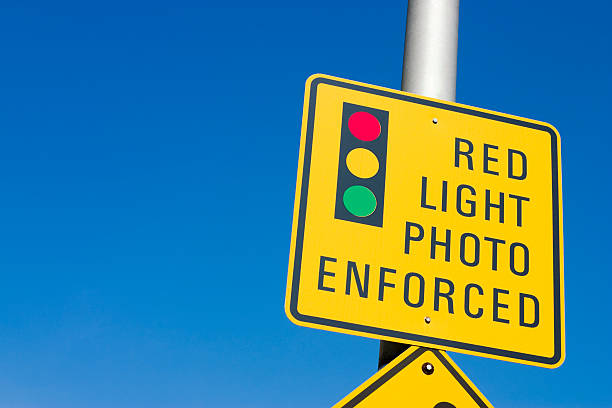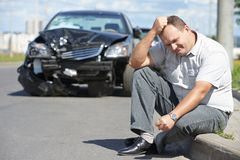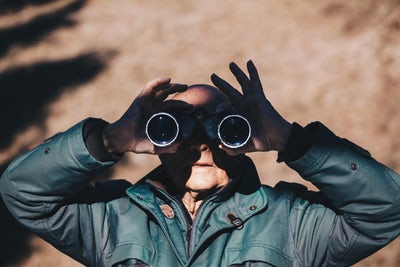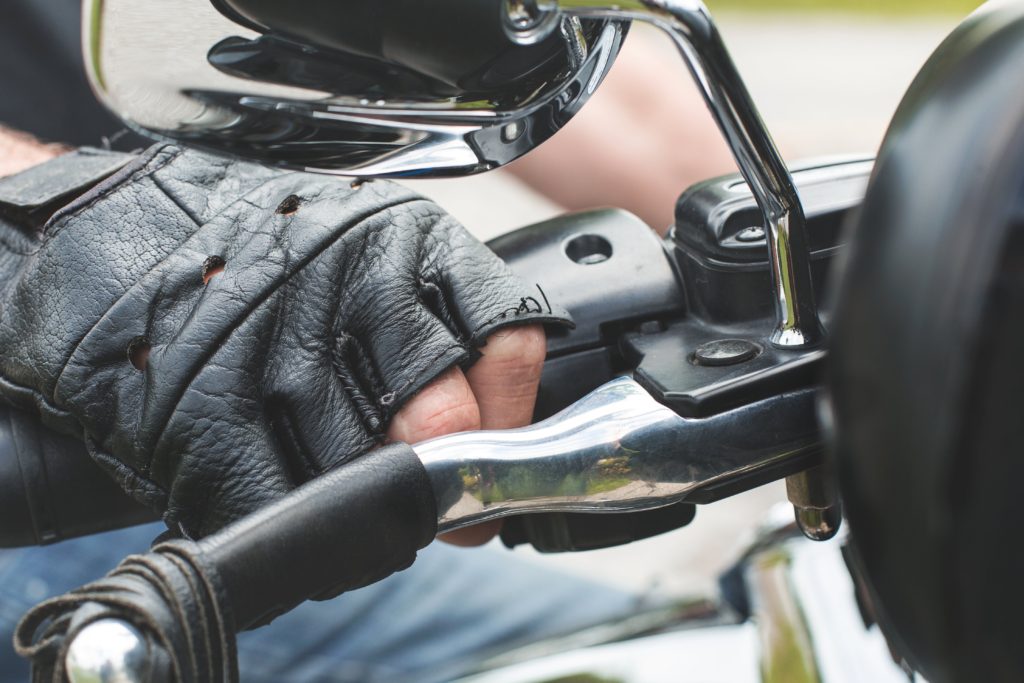Constitutional Rights, How to Be a Good Plaintiff, Privacy, Technology
Who Can Search My Cell Phone?
NEW ORLEANS, LA — If you’ve been involved in a lawsuit, it’s likely that your opponent requested or obtained your cellular phone data. Plaintiff and defense attorneys both seek cellular phone data during the discovery period of your case, especially following a car accident. The most basic reason to access a driver’s cellular records is to help determine if he or she was distracted at the time of the accident, perhaps illegally texting and driving. This can help a fair and just resolution of a motor vehicle claim.
However, modern cellular phones are more accurately considered personal computers. If a law firm obtains full or even partial access to your cellular phone, they won’t just be able to determine if you were texting while driving. They could also potentially obtain such personal information as what medications you take, what internet sites you visit including dating sites, or your political or religious affiliations. The potential for an inappropriate and unnecessary invasion of a client’s privacy is such a serious concern that courts must consider the benefits of granting an adversary access to a citizen’s cellular phone, even in criminal cases.
The decision of one criminal case heard before the United States Supreme Court, Riley v. California has had strong implications for civil discovery. In Riley, the Court considered whether or not police could perform a warrantless search of a cell phone found in the pocket of an arrested person. Chief Justice Roberts, delivering the opinion for the Court, noted that “The storage capacity of cell phones has several interrelated consequences for privacy. First, a cell phone collects in one place many distinct types of information—an address, a note, a prescription, a bank statement, a video— that reveal much more in combination than any isolated record. Second, a cell phone’s capacity allows even just one type of information to convey far more than previously possible. The sum of an individual’s private life can be reconstructed through a thousand photographs labeled with dates, locations, and descriptions; the same cannot be said of a photograph or two of loved ones tucked into a wallet.” The Supreme Court decided that the potential violation of privacy as well as the broad scope of information contained within a cell phone’s “immense storage capacity” took precedence over all other concerns.
Almost immediately after this decision in a criminal matter, Riley was cited in opposition to civil discovery requests. A federal district court in Connecticut denied plaintiff’s request for data from defendants’ cellular phones in Bakhit v. Safety Marking, Inc, et al, stating in part that “The implication of the individual defendants’ privacy interests in the data stored on their cell phones also persuades the Court to deny plaintiffs’ motion. This conclusion is further reinforced by the recent Supreme Court ruling in Riley v. California, Nos. 13-132 and 13-212, 573 U.S. __ (June25, 2014), which recognized, albeit in the criminal context, the privacy concerns implicated by the modern cell phone.”
As technology continues to advance, lawmakers must endeavor to keep pace with new developments and consider the ethical obligations that new technology—whether it be cellular phone storage or genome sequencing—impose upon our society. In 1816, Thomas Jefferson warned that “Laws and institutions must go hand in hand with the progress of the human mind. As that becomes more developed, more enlightened, as new discoveries are made, new truths disclosed, and manners and opinions change with the change of circumstances, institutions must advance also, and keep pace with the times.”
If you’re involved in a motor vehicle accident or otherwise considering or involved in civil litigation, it’s critical that you select a law firm that takes the advance of technology and the legal challenges it prevents as seriously as it takes the defense of your rights. The experienced attorneys at The de Boisblanc Law Firm understand today’s technological advances, and know how to use technology to your advantage without allowing your adversary to infringe on your privacy and rights.
Car Accidents, How to Be a Good Plaintiff, Truck Accidents
New Orleans Holiday Season Raises DUI Risks
NEW ORLEANS, LA — Tis the season in New Orleans! In a city known worldwide for its dedication to the Good Times, residents and visitors alike will be making extra merry for the one hundred and three days between Thanksgiving and Mardi Gras. Whether it’s a private party at a friend’s home, a dinner celebration on the town, a day at the racetrack, or one of the many Carnival parties, balls, and parades, New Orleans offers ample opportunity for conviviality during the holiday season. Unfortunately, all of the merriment increases the risk that you, or someone you love, could be involved in an alcohol-related motor vehicle accident.
Drunk driving claims more than 10,000 American lives per year. In 2016, an average of 29 people died per day, or one person every 50 minutes. In 2014, 300 hundred Louisiana residents were killed in motor vehicle accidents involving drunk drivers.
A large number of these preventable fatalities occur during the holiday season. Tragically, 781 Americans lost their lives due to drunk drivers in the month of December, 2016, and an average of 300 people per year lose their lives due to drunk driving during the week between Christmas and New Year’s Day.
While nationally New Year’s Eve is one of the most dangerous single holidays when it comes to drunk driving injuries and fatalities, in Louisiana, Mardi Gras can often be worse. In 2009, alcohol played a part in 48% of motor vehicle collision fatalities; during Mardi Gras, that percentage spiked to almost 70%.
There are many actions savvy celebrants can take to reduce alcohol related fatalities and injuries during the holiday season. Hosts and hostesses can play a part in increasing the safety of their guests by simply serving non-alcoholic beverages alongside wine and spirits. Hiring or recruiting a volunteer bartender allows alcohol consumption to be monitored, giving a hostess the opportunity to determine if a friend has had one too many. Often times, simply asking a guest if he or she has a safe and sober ride home encourages responsible drinking behavior, and it may save that friend’s life.
Party-goers should plan their transportation in advance. Although the designated driver, who volunteers to abstain from alcohol for the evening, is always a wise choice, there are other options for the crew who wants to roister together. The prevalence of ride-sharing services like Uber or Lyft might be responsible for a reduction in drunk driving. Ride-sharing and traditional taxi cabs allow revelers to enjoy their evening without worrying about designating a sober friend. Leaving your car at home before the night gets started all but ensures that a poor transportation choice won’t be made later on, when inhibitions are lowered and courage is up due to alcohol consumption.
Unfortunately, even the most responsible person can become the victim of a drunk driver. In that case, it is always advisable to retain an attorney to help recover compensation for damages caused under these tragic circumstances. The experienced attorneys at The de Boisblanc Law Firm offer free consultations to victims of careless drivers, and are committed to helping victims seek the justice they deserve.
May your holiday season be dazzling, merry, and most of all, safe!
Car Accidents, Constitutional Rights, Technology, Truck Accidents
New Orleans Begins Removal of Controversial Traffic Cameras
NEW ORLEANS, LA — Mayor Latoya Cantrell made news by pledging to remove twenty cameras in New Orleans, in line with her campaign promises to suspend the universally hated program. However, even though more than 70% of the voting public is against traffic cameras it appears the enforcement tool isn’t going away any time soon.
In some cities, protests against traffic cameras have turned into illegal action on the part of disgruntled motorists, such as Stephen Ruth of Long Island, NY, dubbed the “Red Light Robin Hood” by his community, who was arrested for sabotaging numerous cameras. In a strange turn of events, Mr. Ruth’s actions led to an interesting discovery: in his Suffolk County community, yellow lights where there are no traffic cameras last for five seconds, but where there are traffic cameras, yellow lights only last three seconds. Around the country, residents of other cities have discovered the coincidental correlation between the installation of red light cameras and shortened yellow light durations.
Numerous studies show that increased yellow light times reduce violations and create safer streets. Longer yellow light times also reduce revenue generated from traffic camera tickets.
Proponents of traffic cameras argue that they increase safety. New research from Case Western Reserve University suggests otherwise, stating in part that motorists shift their driving patterns. “Once drivers knew about the cameras, they appeared to accept a higher accident risk from slamming on their brakes at yellow lights to avoid an expensive traffic citation—thereby decreasing safety for themselves and other drivers,” said Justin Gallagher, an assistant professor of economics at Weatherhead School of Management at Case Western Reserve, and co-author of the paper recently published to Social Science Research Network.
It’s well known that most citizens hate the cameras and don’t want them. What is less clear, is whether or not the cameras are constitutional. The Sixth Amendment’s Confrontation Clause states that citizens have the right to confront their accuser. In the case of traffic cameras, the accuser is a machine managed by a technician with whatever company is running the cameras. In some municipalities, a technician’s report is read to the court by a police officer who was not present to witness the alleged violation. When accused persons raised concerns as to the calibration and reliability of the machine that “caught” their violation, a certificate was often presented in court, and all parties were expected to believe in the authenticity and accuracy of that certificate. In Melendez-Diaz v. Massachusetts, the United States Supreme Court ruled 5-4 that “merely producing such a certificate in court is insufficient. Defendants have the right to cross-examine any individual who claims to have certified evidence.”
However, municipalities that make traffic camera tickets civil violations avoid having their traffic camera programs challenged on a constitutional basis. In New Orleans, these fines are considered “Civil Penalties,” and if unpaid, will be sent to a collection agency. A citizen may contest the ticket by requesting a hearing.
Whether or not the traffic camera ticket programs will survive their many deficiencies, and concerns about their constitutionality, remains to be seen. For now, motorists are all but united in their dislike for these programs, and New Orleans residents look forward to further action from Mayor Cantrell to reduce and remove this unpopular program.
Car Accidents, How to Be a Good Plaintiff
How to Protect Yourself from Uninsured Drivers
NEW ORLEANS, LA — Being involved in a car accident is traumatic enough; but what happens when the at-fault driver lacks insurance to cover the costs of the damage he caused? The motorist who is the victim of a collision with an uninsured driver might find himself unable to pay necessary medical expenses, or lacking money to pay his bills should his injuries cause him to miss time from work. Recent studies indicate that uninsured drivers cost motorists and insurance companies a whopping $2.6 billion dollars in the year 2016 alone.
It’s important that motorists understand the risks of being involved in a collision with an uninsured motorist – and understand what they can do to protect themselves.
While carrying automobile insurance is the law in every state, except for New Hampshire, approximately 13% of Louisiana drivers operate uninsured on our roads, roughly on par with the national average. This means that more than one of every ten vehicles we pass on our daily commutes are uninsured for any damages they might cause in a collision. Car accidents cost an approximate $260 billion per year, from small fender benders and soft tissue injuries, to major collisions with life-altering consequences for the victim and his family. It’s important that motorists protect themselves and their families from this threat.
One way to minimize the consequences of being struck by an uninsured motorist is to purchase uninsured/underinsured motorist coverage. In many states, especially those with a higher-than-average percentage of uninsured motorists, this form of insurance coverage is mandatory, but in Louisiana a motorist can choose either to purchase uninsured/underinsured motorist coverage, or to decline this additional protection. This protection may be exclusive to medical payments, economic loss coverage, or it may provide full protection that will take into account the pain and suffering you may endure in a collision as well as providing much needed funds for medical bills and economic loss.
As the name suggests, uninsured/underinsured motorist coverage doesn’t just come into effect if you’re struck by an uninsured driver. Louisiana law provides that motorists must carry minimum coverage of $15,000.00 per person, $30,000.00 per accident, and many motorists purchase only this minimum, which can quickly be exhausted by medical bills. Uninsured/underinsured motorist coverage protects you in the event that your damages exceed the amount of coverage held by the person who hit you.
It’s important to protect ourselves against risk, and our mandatory liability insurance protects us against being held financially responsible for the damage we cause another person in a collision. But uninsured/underinsured motorist coverage is essential for the driver who wants to protect himself against the damage caused to him by a motorist who violates the law and doesn’t purchase any insurance, or in instances where the insurance coverage on a vehicle that hits you isn’t enough to cover your damages. Another important part of protecting yourself and your rights, if you’re in a car crash, is to consult with an attorney who understands how to recover as much as possible for the damages you’ve suffered. If you’re in a car crash, the experienced attorneys at The de Boisblanc Law Firm are ready to schedule you for a free, no-obligation consultation today.
Privacy, Technology
Facebook Hack Raises New Privacy Concerns
NEW ORLEANS, LA — The safety of the personal information we share online comes under question yet again in the aftermath of a cyberattack which targeted the profiles of fifty million Facebook users.
In this instance, hackers exploited a vulnerability in Facebook’s ‘view as’ feature, which allows users to view their profiles as another account would. Through manipulation of this feature, hackers were able to access profiles, and potentially, information from the apps that users signed onto using their Facebook login. To date, Facebook has not stated that they know the identity of the hackers, or what the purpose of the attack might have been.
This is only the most recent Facebook scandal. In the lead-up to the 2016 presidential election, the firm Cambridge Analytica legally acquired data from up to 87 million Facebook users, in order to analyze their personal and political preferences.
By developing an app known as ‘This is Your Digital Life’, agents of Cambridge Analytica accessed data when users downloaded the app in order to participate in quizzes and other time-passers, thereby linking the app to their account. However, users were never informed that their data would be taken and analyzed for political purposes.
At its most basic level, social media sites like Facebook create a clearinghouse for our valuable personal data, which is then “mined and measured, sorted and sold.”
We willingly share this information, because we enjoy networking with others, and because of the convenience in-app purchases. But whether this data is then stolen, or simply sold to marketing firms or behavioral researchers, has Facebook done enough to make users aware of how extensively personal data shared to Facebook is harvested, sold, analyzed, and even potentially stolen by, a wide variety of third parties?
The Federal Trade Commission didn’t think so.
In 2011 Facebook entered into a consent decree with the FTC, which had specifically accused Facebook of deceiving users with regards to the privacy of their data. However, two of the federal officials who helped craft the consent decree now feel that Facebook might have violated it, due to the Cambridge Analytica scandal. So far, the FTC has made no comment regarding any violation, but the potential for another investigation cannot be ruled out.
Indeed, it seems only a matter of time before another privacy-related scandal occurs. The entire business model of Facebook, whose ‘free service’ ran up an operating cost of $3.28 billion in the fourth quarter of 2016, is to gather personal data from individuals around the world, then sell that data to interested parties. And while Facebook and other social media sites don’t do much to alert the user to this fact, they do design their program in such a way that sharing personal information, whether it be lifestyle choices or political leanings, is rewarding, and studies say, even addictive. There is a clear incentive for any company to encourage users to share as much data as possible; it’s just as easy to see that if users were warned before sharing that their data would be sold, analyzed, and exploited, and that the act of sharing itself was potentially addictive, then social media giants like Facebook might find themselves with a rapidly shrinking number of profitable users.
The law has yet to fully consider all of the complex issues potentially involved social media platforms. In the meanwhile, users of social media should fully consider just how large their audience actually is, before they share or like that post.
Car Accidents, How to Be a Good Plaintiff, Truck Accidents, Uncategorized
Your Car’s Black Box is Monitoring You
NEW ORLEANS, LA — Chances are, the car you drive has a black box, also known as an Event Data Recorder, and it’s there to monitor almost all you do behind the wheel. If you’re in a crash, that EDR is able to supply such information as your speed, break use, engine throttle at the time of impact, and data from a dozen other mechanical categories, including whether or not you were wearing your seatbelt at the time of a collision. When a motorist is driving, the EDR continuously records data, but only in the event of a collision is that data stored, so that it can be retrieved by accident reconstruction experts, insurance companies, and even courts.
An Event Data Recorder has many useful functions. In some car accidents, it can be difficult to determine fault. When the EDRs of vehicles involved in a collision are analyzed, accident investigators or reconstruction experts can often determine which party was at fault, helping the victims of careless drivers find justice and compensation for their injuries. Event data recorders also help fight insurance fraud, which helps insurance companies save money and charge lower rates to customers. An EDR can help an insurance company determine the severity of a crash, so that it can analyze a claimant’s injuries and better ensure that the injuries make sense in the context of the crash. Some EDRs also record whether or not a seat was occupied at the time of collision. And finally, an EDR helps fight back against staged accidents.
The EDR can even help save lives. When accident investigators explore the data saved in the EDR of a vehicle involved in a catastrophic collision, they aren’t just able to analyze dangerous driving practices, they can determine if the vehicle encountered any mechanical failure, such as a failed airbag deployment or a faulty breaking system, which led to injury or loss of life. If the failure is the result of some deficiency in manufacturing, an automaker can enact a recall to solve the problem, perhaps saving many lives.
However, in spite of all of the benefits of the EDR, some believe that Event Data Recorders invade our privacy. In today’s world, it’s concerning that a computerized device in our vehicles might be used to determine where we go and when, potentially revealing other personal details about our lives. Americans are concerned over who can have access to the data stored in their EDR. Might an employer, or some other third party, be able to access that information? The Driver Privacy Act of 2015 aims to address these concerns. Unless authorized by a court, necessary to provide post accident medical treatment, used to carry out investigations that are authorized by Federal Law, or anonymously used for purposes of traffic safety research, the owner of a vehicle owns his EDR data, and a third party must obtain his consent before accessing his driving data.
Technology such as the Event Data Recorder will continue to evolve and enhance, as will questions and concerns about the potential uses of such data. It’s important for motorists today to realize that their vehicle is most likely equipped with an EDR, and that the EDR will help them understand just how a crash happened, should they be involved in a motor vehicle collision. If you’re involved in any motor vehicle accident, it’s important to consult an experienced attorney like the attorneys at the de Boisblanc Law Firm, who can help you protect your rights, and seek compensation if another party’s negligence has injured you.
Motorcycle Accidents, Traumatic Brain Injury
Motorcycle Accidents and Traumatic Injury
NEW ORLEANS, LA — Motorcycle accidents are a leading cause of accident-related injuries and fatalities in Louisiana today. From 2012 through 2016, four hundred and thirty-two people were killed in motorcycle accidents on Louisiana’s streets and highways. According to the CDC, wearing a helmet while operating or riding a motorcycle reduces the risk of dying in a collision by 37%, and reduces the risk of head injury by a full 69%. In the state of Louisiana, the law requires that motorcyclists wear helmets. In 2016, almost 1,900 lives were known to be saved by motor cycle helmets, and nearly 3.4 billion dollars in economic damages were saved by the use of motor cycle helmets. However, even when a helmet is used, serious head injury is a likely outcome when a motorcyclist is involved in a motor vehicle collision. Helmets can prevent many penetrating head trauma injuries, such as skull fractures or foreign objects entering the brain. Yet even when a helmet is worn, the forces involved in a collision can cause the brain to be injured, because the brain can be shaken inside the skull, causing swelling, bruising, or bleeding of the brain tissue.
A common outcome of a motorcycle injury is a concussion, which causes symptoms ranging from dizziness and headaches to memory loss. There may or may not be a loss of consciousness involved. Concussions are usually temporary, and may not have lasting impacts on the victim’s health. Yet sometimes, a concussion can be a symptom of a more serious condition, including those conditions categorized as Traumatic Brain Injuries or TBI. Traumatic Brain Injury can have lasting or even permanent effect on the victim’s life, including a loss of economic potential and a requirement for long-term medical care. A third possible outcome of a head injury caused by a motorcycle collision is a hematoma, which is when blood pools inside the brain or between the brain and the skull. A hematoma is a life threatening condition which requires surgery.
The severity and potentially disastrous outcomes involved in a motorcycle collision require cyclists to take precautions, such as wearing a helmet, obeying all traffic laws, and being alert for other drivers. But if the worst happens, and you or a loved one is a victim in a motorcycle collision, it’s important that you seek legal representation to fight for your rights. The costs associated with head injuries are often extremely high: from surgeries to special therapies to lost wages and the potential requirement for long term medical care, the lifetime cost for the victim of a severe traumatic brain injury can reach 4 million dollars. Insurance companies will often try to make a quick and low settlement, leaving the victim and his or her family stuck with the costs. If you or someone you love has been involved in a motorcycle collision, call the experienced attorneys at the de Boisblanc Law Firm and arrange for a free consultation today.
Constitutional Rights, Legal Humor
US District Court Rules Blogger Can Mock Stench in Sibley
SIOUX CITY, IOWA – The US District Court for the Northern District of Iowa has ordered the city of Sibley not to sue a resident for using social media to complain about the stench of a local dog-food processing plant, causing the internet to wonder, “What was the city thinking?”
In 2013, after receiving financial incentives from the city government, Iowa Drying and Processing began operations in the small town of Sibley. According to their website, their product is “food and feed grade products,” created by rendering such appetizing items as “turkey digest.” The plant brought twenty-six jobs to the small town, but unfortunately, it also brought a nuisance that residents couldn’t ignore: a pervasive and gagging stench that permeated the entire town, especially on hot and humid days.
Wade Elerbroek, a Sibley resident and business owner, described the smell as “as rancid and dead animal-like” in the Sioux City Journal. Residents complained that the smell was so noxious, it prevented them from being able to use their air-conditioners, open their windows, or even dine in the small town’s restaurants. They christened IDP’s plant, “The Blood Plant,” and complained to their city government.
In 2015, frustrated by what he perceived to be that government’s inaction, resident and web designer Josh Harms created the website Should You Move To Sibley, Iowa? where he pointed out the town’s attractions, such as hiking trails and his favorite Mexican restaurant, and contrasted those local perks against the asphyxiating aroma of stale blood and processed animal parts.
While it took the city government two years to discover the website, once they did, they were not amused, and they felt compelled to take action against Harms for publishing his critical blog. As reported in The Des Moines Register, an attorney for the city sent Harms a cease and desist letter, advising him he had ten days to remove his website or be sued. The city claimed that Harm’s website “libels Sibley, interferes with the recruitment of businesses and new residents, and negatively affects property rights.” Another attorney also warned Harms against speaking to reporters. Harms went straight to the ACLU, and a complaint was filed in the US District Court for the Northern District of Iowa, where Harms alleged the city was violating his First Amendment and Civil Rights. “Receiving this threat from the city was the first time I’ve ever felt afraid that what I might write and put online would make me a target of my own government,” Harms said in a statement.
The US District Court agreed, and issued an injunction on Thursday, March 29, 2018, preventing the city government of Sibley from threatening legal action against Harms due to his critical website; it also prevents the city from telling Harms he can’t talk to the media.
ACLU Legal Director of Iowa, Rita Bettis, stated “Today’s outcome sends a strong message to the city of Sibley and all Iowa government officials to respect the free speech rights of Iowans. The right of the people to freely and openly criticize their government is the very foundation of democracy. In America, the government cannot threaten legal action against someone for speaking out against it.”
The Constitution thus defended, Harms returned to work on his website, where he now offers a bit of legal advice for governments large and small, concerning the definition of libel, and the illumination of citizens’ rights, in hopes of avoiding future confusion. The city, for its part, has fined the “Blood Plant” and sought its own legal remedies. According to Harms, the odor has improved, although noxious fumes occasionally return to plague the citizens. As for the dog food plant, they state they are actively working to mitigate the fumes, and they’re also considering moving to greener pastures.









